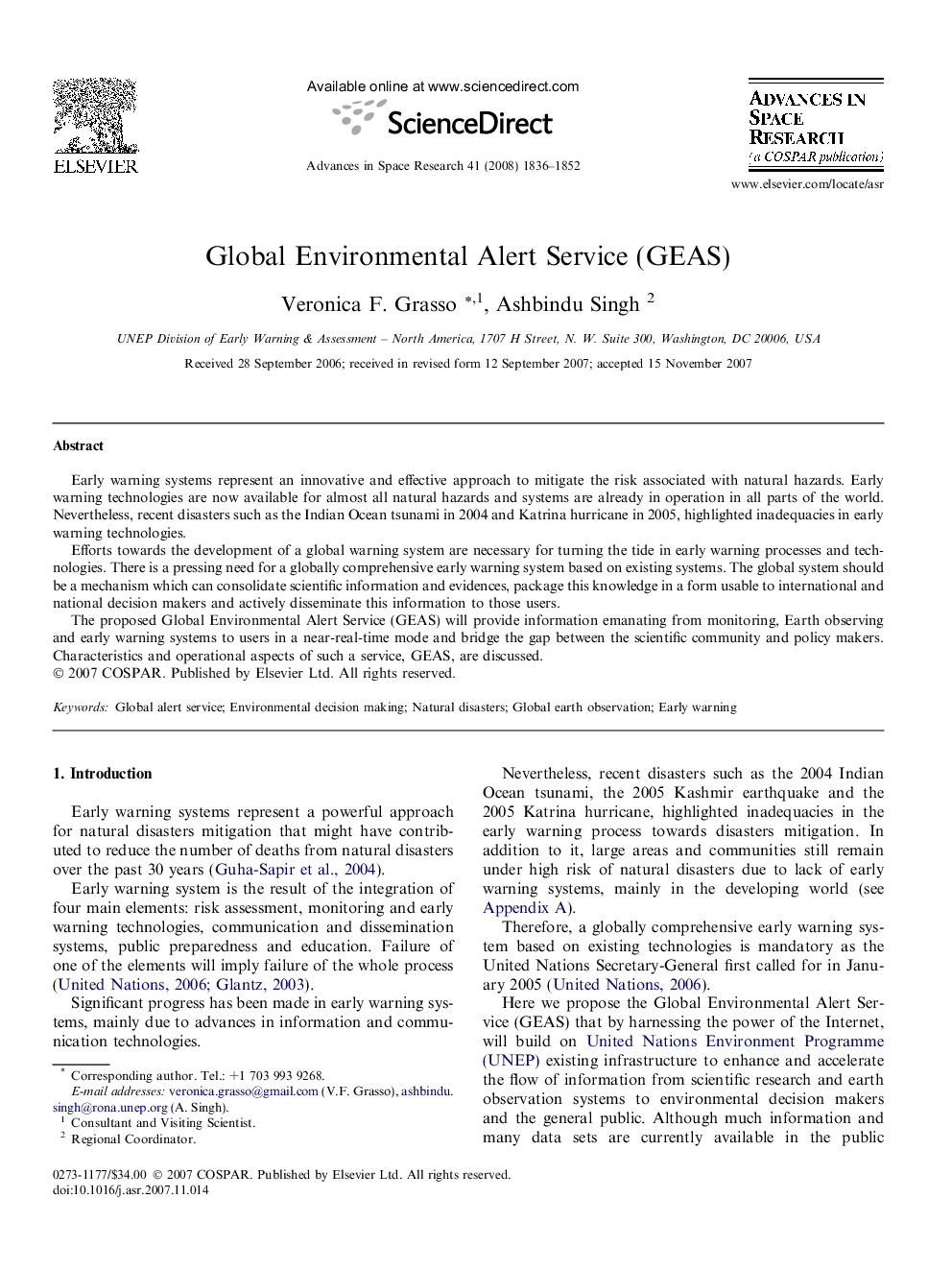| Article ID | Journal | Published Year | Pages | File Type |
|---|---|---|---|---|
| 1768495 | Advances in Space Research | 2008 | 17 Pages |
Early warning systems represent an innovative and effective approach to mitigate the risk associated with natural hazards. Early warning technologies are now available for almost all natural hazards and systems are already in operation in all parts of the world. Nevertheless, recent disasters such as the Indian Ocean tsunami in 2004 and Katrina hurricane in 2005, highlighted inadequacies in early warning technologies.Efforts towards the development of a global warning system are necessary for turning the tide in early warning processes and technologies. There is a pressing need for a globally comprehensive early warning system based on existing systems. The global system should be a mechanism which can consolidate scientific information and evidences, package this knowledge in a form usable to international and national decision makers and actively disseminate this information to those users.The proposed Global Environmental Alert Service (GEAS) will provide information emanating from monitoring, Earth observing and early warning systems to users in a near-real-time mode and bridge the gap between the scientific community and policy makers. Characteristics and operational aspects of such a service, GEAS, are discussed.
